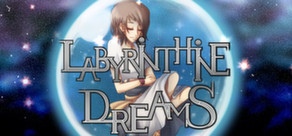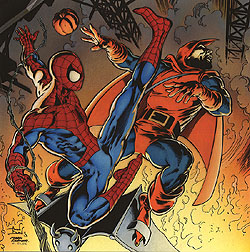Maybe it's just because the news cycle seems even more apocalyptic than usual, but upon completing this comforting annual tradition for myself, I can't help but wonder how the movies of this era will be perceived by a future civilization. I think the evolved cockroaches (or whatever comes next) will see a lot of contradictions between our art and our history. They would see a people who were very aware of the injustice and dangers around them but were unable to change things. It's a strange dynamic - the far-right is winning at politics while the left is winning the culture war. If we do make it through the next few years, can you even imagine the movies that will be made about this era? They will shape the narrative for generations in the same way that many films and television shows today are presenting controversies of the 80s and 90s with new perspectives that will be instrumental for people who weren't old enough to already have an opinion on these events (When They See Us on Netflix is the most striking example that comes to mind). Of course, that won't be much comfort if civilization has collapsed. Am I writing some sort of weird obituary for humanity right now? I'm not sure, ask me again next year and I should have a better idea.
Before we get to the Top 10, I want to note that because this is a year that ends in a 9, a Best of the Decade list is coming up too. It's my first time doing one of those (I can't really remember why I didn't do it for 2000-2009, but I never did). I'll need a bit more time for that one, hopefully by the end of the month. But for now, let's talk about 2019.
10. Dolemite Is My Name
In the tradition of movies like Ed Wood and The Disaster Artist, this is the story of how a ridiculous but irresistible blaxploitation classic came to be. Eddie Murphy plays Rudy Ray Moore, a struggling comedian who finds success with a foul-mouthed character named Dolemite who speaks in rhymes and even laid the foundation for rap music. The ambitious Moore is determined to make a movie and despite very little money and no knowledge of the process, he pushes ahead and recruits a crew played by a fantastic cast - Wesley Snipes as the director, Keegan Michael-Key as the screenwriter, Da’Vine Joy Randolph as the female lead, Craig Robinson as the composer and many more. It’s the kind of R-rated comedy that made Murphy a star and the actor gives an effortless performance. I didn't realize how much I missed him during the years he presumably spent walking the Earth as penance for Norbit. Unlike that film or the original Dolemite (which I do recommend for bad movie fans), this movie is unquestionably warm and well-made.
9. Hustlers
Based on a true story, this engaging tale begins in 2007 as Dorothy (Constance Wu) begins working at a strip club and is mentored by the wily Ramona (Jennifer Lopez). The 2008 financial crisis drives off most of their wealthy clients and Ramona concocts a daring scheme, recruiting some of their co-workers to drug unsuspecting rich men and talk them into spending a fortune. The Wall Street crowd certainly deserved this treatment after wrecking the economy, but the film is mature about its subject and shows that even the most righteous criminal schemes have collateral damage. It’s a great story worthy of Martin Scorsese (he only made one movie this year but it felt like his legacy was everywhere) and is constantly engaging thanks to Lorene Scafaria’s assured direction and some excellent acting. Jennifer Lopez in particular dominates the film and earned the critical praise which had eluded her for many years. She might even have an Oscar nomination to show for it. It's a long way from Gigli.
8. The Edge of Democracy
It says a lot about the state of the world that you may not know what country this film is about until I specify. The military dictatorship in Brazil only ended in 1985 but the country had become one of the world’s most successful democratic nations thirty years later. This epic but personal documentary chronicles the nation's slide into authoritarianism that resulted in President Dilma Rousseff being impeached and former president Luiz Inacio Lula da Silva (or just “Lula”) being imprisoned. Costa presents this as a result of the machinations of business interests and right-wing politicians and given that it ended with the election of the vile Jair Bolsonaro, an open admirer of the brutal dictatorship of the past, it’s hard to argue with that characterization. It can be hard for viewers not acquainted with Brazilian history to pick up all the details but at the same time, the tale is uncomfortably close to home as these events occur within the global resurgence of fascism that's been a defining part of the decade. By the end, the real-life narrative has achieved a Shakespearean level of tragedy. Lula was released a few weeks ago but it does little to soften the sting. It’s not just about corruption and politics but also director Petra Costa's heartbreak at seeing her home country’s future collapse. We're right there with you, Brazil.
7. The Last Black Man in San Francisco
This arresting independent film is the bittersweet story of Jimmie (Jimmie Fails) who wants nothing more than to move back into his childhood home, a beautiful Victorian-style building built by his grandfather. When the homeowners get into a legal dispute with family members, the house is empty and Jimmie decides to move back in alongside his loyal friend Montgomery (Jonathan Majors). It’s only a matter of time before they are found out but Jimmie is determined to stay. The commentary written on the film focused mostly on gentrification but it’s about much more than that - friendship, destructive macho behavior, and the need for a place to call home in an uncaring world. It’s also disarmingly well made, with unconventional cinematography, a beautiful orchestral score and great acting from the two leads.
6. The Irishman
Martin Scorsese's body of work defined crime films for decades, but with the end of his career approaching, he seeks to drive home the grim reality of violence and corruption. Based in part on true events, the aimless truck driver Frank Sheeran (Robert De Niro) is befriended by the soft-spoken mobster Russell Bufalino (Joe Pesci, who came out of retirement to play the role) and becomes a prolific enforcer and hit man. Eventually he is drawn into the orbit of the notorious union leader Jimmy Hoffa (Al Pacino) and deals with conflicting loyalties as the once prosperous relationship between Hoffa and the mob goes sour. Naturally, the film offers up a plausible explanation for Hoffa’s still unsolved disappearance, although it’s far from a settled question. Throughout a massive three and a half hour running time, Scorsese covers decades worth of history relating to American politics and crime, illustrating how the two are forever intertwined. To accommodate the scope of the story, computer effects were used to make the main actors appear younger for the scenes set in the past, a mostly convincing effect that ballooned the film’s budget to almost $200 million, a huge amount for any movie not featuring superheroes or lightsabers. In the end, the most powerful scenes are close to the present, with the characters realizing that all their petty feuds and power plays are rendered meaningless by the unstoppable passage of time.
5. Funan
The director, Denis Do, adapted his mother's recollections of the Khmer Rouge regime in Cambodia into this harrowing animated film. During a forced march to the infamous labor camps, the three-year old Sovahn and his grandmother are separated from the rest of his family, leaving his parents Chou and Khuon in agony as they try to survive the brutal conditions long enough to see their son again. This film doesn't provide as much historical context as something like The Killing Fields, but it does capture the absolute horror and dehumanization that comes with authoritarianism. Don't let the gorgeous animation and beautiful landscapes fool you, this film is an emotionally wrenching experience. Do was raised in France and the movie's dialogue is actually in French, which is odd given the setting but easily forgiven.
4. Joker
A powerful movie that was at the center of the dumbest non-Trump controversy of the year. Discarding previous versions of the character, it presents the Joker as a man named Arthur Fleck (Joaquin Phoenix) struggling with poverty and mental illness. Batman has yet to emerge in this Gotham City, while Fleck dreams of being a stand-up comedian and tends to his ailing mother (Frances Conroy). The character’s signature laughter is the product of brain damage Arthur experienced as a child and Phoenix, giving a magnificent performance, makes the audience believe that Fleck is doing his best not to laugh and looking like he would rather cry. This is no superhero film, but a drama that borrows heavily (perhaps too heavily) from the work of Martin Scorsese, even casting Robert De Niro as the host of a TV comedy show. Rather than a vat of chemicals, it’s society that creates this Joker and while it’s hardly the first movie to depict an ordinary man driven to violence, the character’s popularity led to numerous commentators condemning the film as potentially dangerous to the wrong viewer. It packed theaters for months but there were no shootings, almost like violent psychos don't wait for movies to give them permission. I swear, some of these people don't even seem to think violent things happened before movies or video games were invented. Would you like to know the real reason this film was so controversial? Even from its trailer (which was the best one of the year), it was clear that the film would focus on how the uncaring systems of America hurt and alienate people every day and then expect them not to get angry about it. It's a timeless, obvious truth that when you push people hard enough, they push back...and yet we're all supposed to sweep that under the rug and put up stupid memes on Facebook about how expressing gratitude will solve all your problems. Joker lifted up the rug and the public responded in a big way - not because they're mass murderers but because it feels like that's what the world is always trying to turn them into.
3. Apollo 11
50 years after the historic expedition to the moon, this documentary treated the public to a treasure trove of rarely seen footage of the event. With no narration and no interviews, it places the viewer right into the era and the images are so polished it looks more like it was shot yesterday. Astronauts Neil Armstrong, Buzz Aldrin and Michael Collins spend a week getting to the moon and back while an evocative musical score and audio from NASA communications set the mood. What’s most impressive is how the film takes these world famous events and presents them from new angles. The actual touchdown on the moon is seen from a camera attached to the landing craft and watching the surface come closer and closer is a breathtaking experience. The filmmakers probably didn't intend this, but watching a film about one of America's greatest achievements in a time when the country is collapsing around us is truly a bittersweet feeling. It would be ill-advised to get too nostalgic for an era that had plenty of its own problems but the surprisingly moving scene where President Nixon speaks to the astronauts can't help but recall a time when even the corrupt presidents could at least string a sentence together.
2. Tigers Are Not Afraid
If Guillermo Del Toro had directed City of God, the result might look something like this emotional and dark fairy tale set in an environment that's all too real. In an unnamed Mexican city, the ongoing drug wars have devastated the area and orphaned numerous children. When Estrella's (Paola Lara) school is suddenly shot at, her teacher attempts to calm her down by telling her she now has three wishes. As she joins a band of orphans led by a hardened boy going by "El Shine" (Juan Ramon Lopez), Estrella wonders if she can use her wishes to help...but like the famous story of the monkey's paw, these wishes have unintended consequences. It's a strong example of what is sometimes called "magical realism," with charming visual touches to offset the gritty subject matter. It's a knockout of a movie, with beautiful direction by Issa Lopez and strong performances from the children in the cast. Harsh but empathetic, it's a powerful portrait of a situation that often feels invisible to the rest of the world.
1. Parasite
Coming at the end of a decade, this brilliant movie about class and economic desperation feels very much like a culmination - of Joon-ho Bong's impressive career, of unflinching Korean cinema that has produced unforgettable crime and social dramas for years, and of an era where capitalism has brought intense suffering to people all over the world. The struggling Kim family gets a lucky break when Ki-woo (Woo-sik Choi) is hired as an English tutor for the daughter of the wealthy Park family. With ruthless cunning, the entire family of four manages to secure jobs in the sprawling mansion while keeping their family connection a secret. It's hard to keep a scheme like this going forever and sure enough some major and unexpected complications occur. Bong keeps this incredibly well-written film walking a fine line between farce and tragedy and ultimately delivers a brutal look at what the humiliation of poverty does to people. If that sounds like a grim art-house vibe, rest assured this movie is as entertaining as any major blockbuster with several bravura sequences that are delightful in their ingenuity. It's a film that makes a strong statement without ever feeling preachy or obvious. If the 2020s are anything like the 2010s, that's going to become increasingly difficult to do.
11. Level 16
12. For the Birds
13. Us
14. One Cut of the Dead
15. Once Upon A Time in Hollywood
16. The Cleaning Lady
17. Alita: Battle Angel
18. Ready or Not
19. The Nightingale
20. Daniel Isn't Real
21. Epstein Didn't Kill Himself
Subscribe to:
Post Comments (Atom)














No comments:
Post a Comment